On January 10, a new Venezuela will emerge

With a slow tone, typical of his diplomatic training, González Urrutia, 75 years old, describes in this interview with The Debate -first to a Spanish newspaper-, the circumstances of his exile, his expectations of returning to Venezuela, the margins of a possible negotiation for the transition and, of course, his feeling in the face of another paradox: being exiled in a country where he still does not recognize him as president-elect, as they do USA, United Kingdom, France and Italy, inter alia.
—Who really rules within the Venezuelan dictatorship?
—The government is divided into several factions. I have no doubt that (Diosdado) Cabello is a strong man of the regime, who has a lot to do with the actions taken in the government, as well as the generalship of the Armed Forces.
—Do you see a possible coup d’état by the Armed Forces to overthrow Maduro?
– I don’t want to know about that. I was elected by the vote of Venezuelans and that is what I want to be respected: the result of the elections.
— Precisely the military witnessed his electoral victory.
—Not only were they witnesses, in all the military installations where there was an electoral voting center, I won. That means to what extent they are clear about what really happened.
— However, the regime has imposed another reality: Maduro’s re-election.
—That has been the eternal struggle with the regime. They try to impose their speech. Their lines of action, which generally do not go hand in hand with the majority current. In this case it is very clear that on July 28 there was a winner who has no room for doubt. There were more than 7 million Venezuelans who opted for the formula that I represented. With one warning: if voting abroad had been allowed, that number would have exceeded 8 million.
—How do you plan to force Maduro to accept this electoral result?
—The transition is going to happen at some point, sooner rather than later. And that situation happens because the government recognizes that it lost an election, that there were close to 8 million Venezuelans who voted for my candidacy and that that is the political reality. The country cannot continue in a situation like the one we are in now, where the majority opposes Maduro’s candidacy or regime. We are promoting a new political reality where everyone can fit in, including Chavismo.
—What is the breaking point for the regime to agree to hand over power?
— International pressure is the only way that can force the Maduro regime to negotiate or understand that its time has passed.
Maduro had an alliance, a very close relationship with President Lula. He had warned him, on several occasions, that this was not the way and he had understood it. In just a few months – although for a limited time – he managed to rectify it. That’s why I don’t rule out this happening again. Gustavo Petro (president of Colombia) could also exert some influence on Maduro because he has a very strong ideological affinity.
—Should Venezuela’s neighboring countries act faster and more firmly?
—The international political reality moves at times dictated by circumstances. It is not what one wants but the pace that things take. I would have liked it to be much more active and for the international community to have reacted more strongly, but that is the reality.
—Meanwhile, how to stop the regime’s repressive machinery?
—Denounce whatever excesses there are, denounce the dictatorial drift, denounce the excesses of the government… All of these things are what must be done permanently. That is the democratic pressure I am referring to.
— Could an arrest warrant from the International Criminal Court against Maduro help?
—I do not dare to express opinions on hypothetical situations, but obviously that would lead to more pressure being exerted against the regime.
— Are you willing to negotiate the transition with figures accused of crimes against humanity?
—Those are things that are overcome for the good, for the ultimate goal, which is to achieve a transition. We are committed to a peaceful transition, which is what we are promoting and what we are looking for. Our aspiration is for it to be like this.
All these processes (of democratic transition) have gone through similar circumstances. The Chileans made their transition and had to endure the presence of General Pinochet (Augusto). The South Africans also had a very complex process, so these situations occur in political processes like this one in which we will have to negotiate with the adversary.
— Are you willing to offer impunity in exchange for democracy?
— Justice will come in due course and will make the decisions that have to be made.
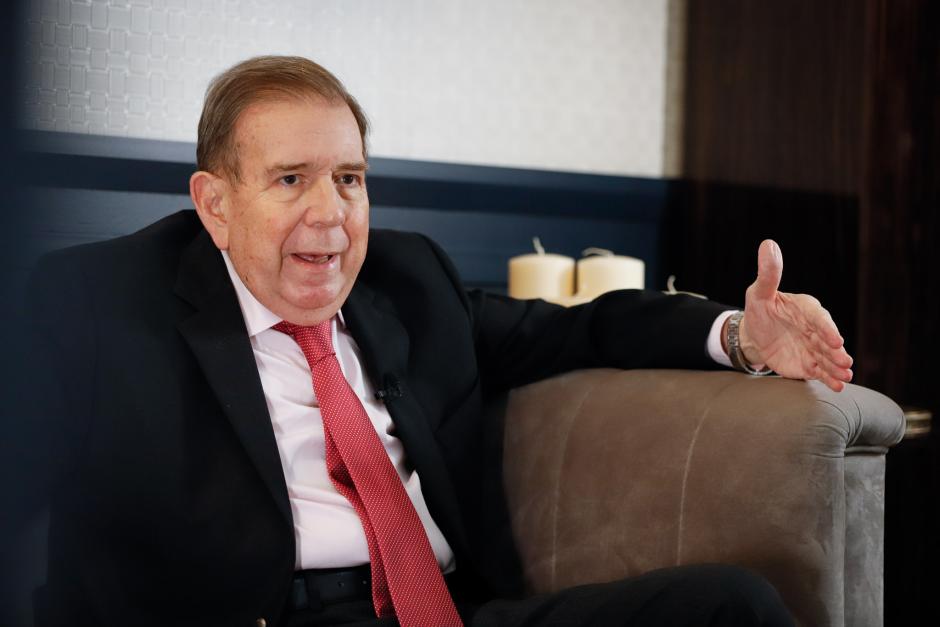
Edmundo González Urrutia, elected president of VenezuelaPaula Argüelles / El Debate
—How do you feel about being in a country that still does not recognize your election?
— I feel very comfortable in Spain and I appreciate all the facilities that the Spanish government has given me. I requested political asylum a few weeks ago and I am waiting for the process that takes several months to be completed. Meanwhile, I can go abroad to do what I am doing and what I came to do, which is to disseminate to the international community the political situation in Venezuela, the assault on the popular will, the theft of the elections. In short, the fraud that was committed.
—What is needed for the Spanish government to take the step of recognizing it?
— Spain has been supportive of me from the beginning. When I was at their embassy in Caracas they immediately gave me all the facilities to move to Madrid. I have received good treatment from the government and I trust that it will continue… At some point, sooner rather than later, full recognition will occur.
—Do you regret having negotiated with Delcy Rodríguez and her brother at the Spanish Embassy in Caracas?
— No, because if not, I would not have been able to leave Venezuela. They were the regime’s envoys to negotiate with me the terms of my departure. And that’s what we did.
— Wouldn’t you have preferred a clandestine option to leave Venezuela?
— No, I was already under the protection of the Spanish government in its embassy… It is true that I was in the Netherlands embassy for 37 days, and from there I made some arrangements to come to Spain.
—Did you coordinate your departure from Venezuela with María Corina Machado?
—He was the first person I told it to. We have a cordial relationship and we are in permanent contact. We speak as frequently as necessary, weekly, daily or as circumstances require.
—How much longer can María Corina Machado resist in hiding?
—They are very difficult, terrible conditions. There is a hunt against her, so she has to constantly seek protection and refuge…
—But what would happen if María Corina were detained by the regime?
— I don’t think they dare to do that. It would be extremely delicate if they were to arrest María Corina. She is a national leader who has run an admirable campaign, who has many followers and I don’t think they dare to do so much.
—If you were recognized as president, would you hand over the presidency to María Corina Machado, as President Cámpora did with Perón in Argentina?
—It is not my intention to follow Dr. Cámpora’s example.
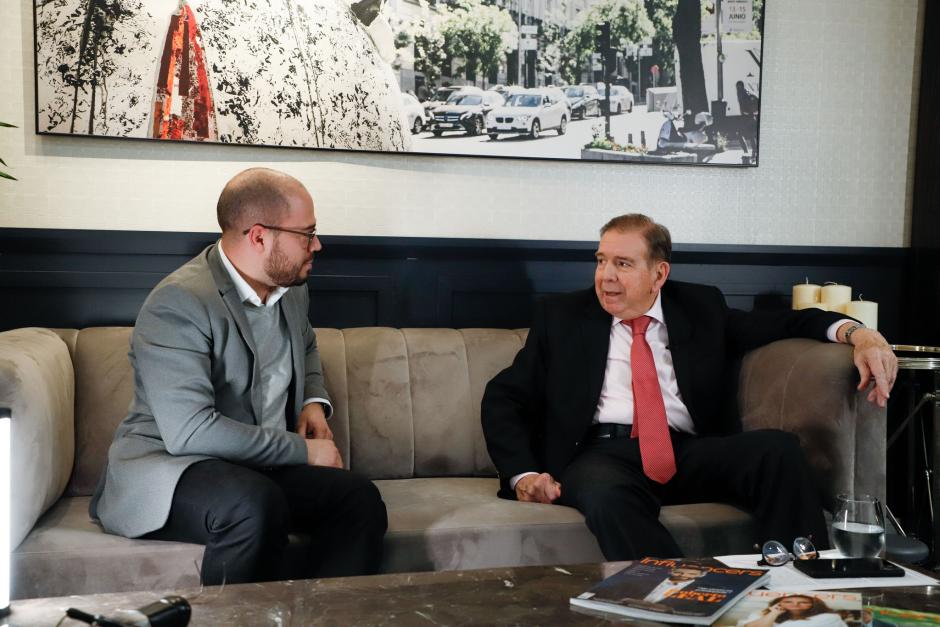
Edmundo González Urrutia, elected president of Venezuela, during the interview with El DebatePaula Argüelles / El Debate
—How do you plan to return to Caracas on January 10 if Maduro repeats and insists that he will not allow you to enter?
—The strategy is not revealed. At some point I will arrive. By January 10, I should be there to take possession of the position for which the Venezuelans elected me. God through January 10th a new Venezuela will emerge.
—Are you afraid of what will happen to you once you return?
—There is a Venezuelan saying that says: “you don’t go to war with fear.” So I am going to face that situation and no, I am not afraid.
—If it is not January 10, what would be the other window of opportunity to return?
— Sooner rather than later, sooner rather than later, it is my aspiration to be there.
— Knowing now the consequences you suffer, would you be a candidate again?
—I did not aspire or plan to be a candidate. It is an experience that I came to forced by the situation, but with conviction and responsibility. I did and do what I should do, what corresponds and I fulfill it with great responsibility, seriously because I believe it is the best for my country. I don’t regret anything, quite the opposite, but I don’t see myself in another electoral scenario.
—Have you had contact with President Donald Trump?
—We have a team in Washington working intensely. He did it during the campaign, during the elections and he does it now. We maintain relations with President Biden’s administration and have already established the necessary contacts with President Trump.
— Are you planning to attend President Trump’s inauguration on January 20?
— (Smiles) I have to receive the invitation first.
Related News
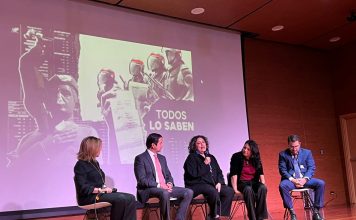
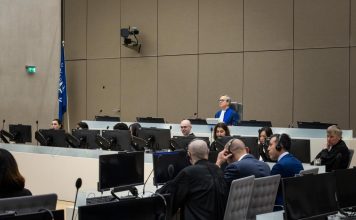
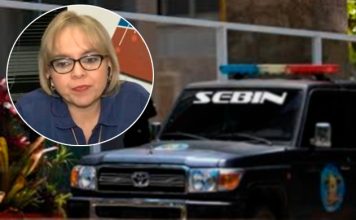
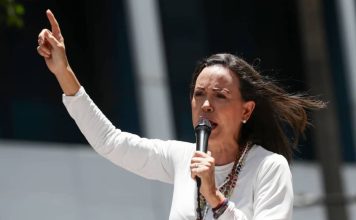
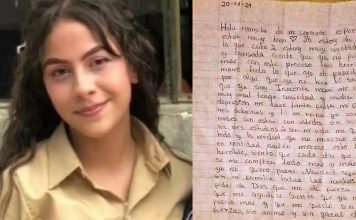

Independent journalism needs the support of its readers to continue and ensure that the uncomfortable news they don’t want you to read remains within your reach. Today, with your support, we will continue working hard for censorship-free journalism!
